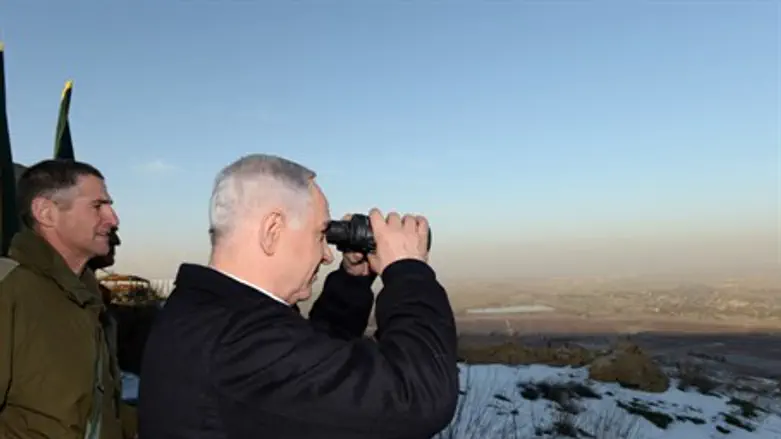
The UN Security Council on Tuesday issued a rejection of Israeli Prime Minister Binyamin Netanyahu's assertion that the Golan Heights would remain part of Israel "forever," but did not go as far in denying Israeli claims as Arab states had demanded.
The The 15-member council agreed that the status of the Golan, which Israel liberated from Syria control in 1967, "remains unchanged," said Chinese Ambassador Liu Jieyi, who holds this month's council presidency.
Liu recalled a 1981 resolution which states that Israel's "decision to impose its laws, jurisdiction and administration in the occupied Syrian Golan Heights was nul and void and without any international legal effect."
The council statement followed remarks made by Netanyahu earlier this month when his cabinet held its first meeting in the Golan.
"The Golan Heights will remain in the hands of Israel forever," Netanyahu said at the start of the meeting, held amid fears that Israel could come under pressure to return the Golan as part of a future peace deal for Syria.
"Israel will never withdraw from the Golan Heights."
Council members "expressed deep concern" over the Israeli statements and "stressed that the status of the Golan remains unchanged," said Liu.
The Arab League and the European Union have also criticized Netanyahu over the remarks.
Notably, however, the Security Council resolution stopped short of any drastic statements such as a call for Israel to withdraw from the 1,200 square kilometer (460 square mile) region, despite pressure from Arab states to do so.
The Golan is a strategically-important mountain range which overlooks much of Israel's northern Galilee region. Prior to its capture by Israel in 1967, Syrian forces used the position to mercilessly shell Israeli civilians in the plains below, and Israel is concerned that ceding control of it would leave it open to be used as a base by its enemies to resume attacks.
Israeli leaders have repeatedly cited as a precedent the IDF withdrawal from southern Lebanon, where Hezbollah forces quickly filled the vacuum and launched hundreds of rockets against Israeli communities - and where today the Shia jihadists have amassed hundreds of thousands more pointed squarely at the Jewish state. Similarly, after withdrawing from the Gaza Strip, Hamas and other terrorist groups did the same. Security officials say Iranian proxies such as Hezbollah, which are already actively building terrorist networks in southern Syria, or Sunni jihadists like ISIS or Al Qaeda, would likely similarly take over the Golan Heights in the event of any withdrawal.
The Golan's once-thriving ancient Jewish community was wiped out by the Arab conquest in 636 CE, but since 1967 has seen a major revival, with dozens of thriving Jewish communities.
AFP contributed to this report.